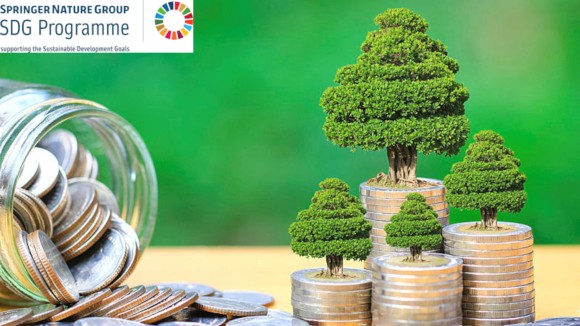 Farhad Taghizadeh-Hesary is an Associate Professor at Tokai University, Japan. In addition, he is Vice President and co-founder of the International Society for Energy Transition Studies (ISETS). He is currently serving as Editor-In-Chief of the Journal of Environmental Assessment Policy and Management and associate editor/board member of several other journals, including Economic Change and Restructuring, Energy Efficiency, Singapore Economic Review, and Global Finance Journal. He has guest-edited special issues for several journals, including Energy Policy, Energy Economics, Finance Research Letters, Resources Policy, and Renewable Energy. In 2022 he was listed on Clarivate’s list of Highly Cited Researchers™ (Top 0.1% of scientists). He was ranked as a top global scholar in green finance based on a recent bibliometric study published in the Renewable Energy journal (Elsevier) in 2022. He holds a PhD in economics from Keio University, Japan.
Farhad Taghizadeh-Hesary is an Associate Professor at Tokai University, Japan. In addition, he is Vice President and co-founder of the International Society for Energy Transition Studies (ISETS). He is currently serving as Editor-In-Chief of the Journal of Environmental Assessment Policy and Management and associate editor/board member of several other journals, including Economic Change and Restructuring, Energy Efficiency, Singapore Economic Review, and Global Finance Journal. He has guest-edited special issues for several journals, including Energy Policy, Energy Economics, Finance Research Letters, Resources Policy, and Renewable Energy. In 2022 he was listed on Clarivate’s list of Highly Cited Researchers™ (Top 0.1% of scientists). He was ranked as a top global scholar in green finance based on a recent bibliometric study published in the Renewable Energy journal (Elsevier) in 2022. He holds a PhD in economics from Keio University, Japan.

 Bing Xu is a Professor of Finance at Heriot-Watt University, UK. Her current research interests are sustainable finance, circular economy, and decision analysis. She is passionate about creating a better understanding of non-technological barriers around business and finance models, social dynamics, and policy that are holding back the transition to net zero. Currently, Bing is leading on “Policy, Society and Finance” theme of work on several multidisciplinary UKRI funded projects, such as UKRI Interdisciplinary Centre for Circular Chemical Economy (EP/V011863/1, £4.4M); Digital Circular Electrochemical Economy (EP/V042432/1, £964k); Zero Emission Cold-Chain (EP/V042548/1, £1.5M); Green-ICEs (EP/T022701/1, £1.2M); CCUS for UK cluster decarbonisation (IDRIC, £483k).
Bing Xu is a Professor of Finance at Heriot-Watt University, UK. Her current research interests are sustainable finance, circular economy, and decision analysis. She is passionate about creating a better understanding of non-technological barriers around business and finance models, social dynamics, and policy that are holding back the transition to net zero. Currently, Bing is leading on “Policy, Society and Finance” theme of work on several multidisciplinary UKRI funded projects, such as UKRI Interdisciplinary Centre for Circular Chemical Economy (EP/V011863/1, £4.4M); Digital Circular Electrochemical Economy (EP/V042432/1, £964k); Zero Emission Cold-Chain (EP/V042548/1, £1.5M); Green-ICEs (EP/T022701/1, £1.2M); CCUS for UK cluster decarbonisation (IDRIC, £483k).
Prospective authors may contact the Guest Editors via email:
Farhad Taghizadeh-Hesary farhad@tsc.u-tokai.ac.jp
Naoyuki Yoshino yoshino@econ.keio.ac.jp
Bing Xu b.xu@hw.ac.uk

